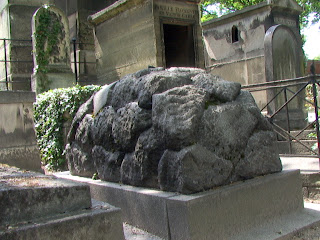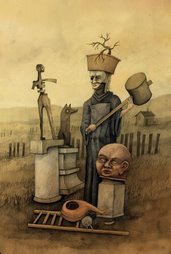
The crazy-making thing about writing this book is the fact that I can't concentrate on it full time. Just after getting a head of steam up on the Herms research, I had to stop and write a couple of articles for my usual gig on such disparate topics as an introduction to Rhode Island College and a tour of the Hearst Castle in San Simeon. And, while I was at it, made a short film "3 Haiku" that will be premiered at RIC next week. (See http://www.youtube.com/watch?v=uH7ILubKQFI)
But now I'm back, working on the bed, ala Proust, with my papers and books spread around me, immersing myself (or trying to) in late 5th century Athenian history. It was a lot like the 60's, pals, but had major overtones of the "government by frat rats" that we've been experiencing here for the past 8 years. So this is one of the things that came poking its head out of the sandstorm at me in the last blog. Partisans of all sides were willing to sell out the nation-state to foreigners rather than let their opponents take over. (Had I mentioned this?)
It was the Golden Age we've all read about with music, art, literature, science, philosophy, at its finest. But I'm a little confused, still, about the role of religion in the whole picture. Ultimate philosophers and clear thinkers and then hundreds killed to "placate the gods" after the herms were whacked. It just doesn't fit. But the more I read, the clearer that's becoming, too.
I ran across this passage in A History of Europe today that really sets this whole project in context. Thucydides wanted to discover the causes which had brought his city and Greece into their dreadful plight. Obviously, as I go along, that's what I'm doing as well. The central question of Sculptural Assassination is supposed to be Why do people massacre statues? But really, it's more like, who are we and why do we do these things and how did it get us into this mess? Are statues no more than sacrificial lambs to our innately superstitious psyches?
Picky questions. Like What is the meaning of life?

No comments:
Post a Comment